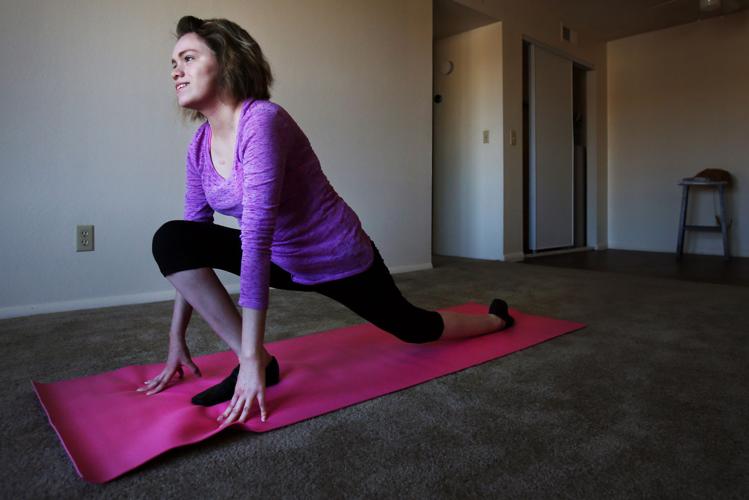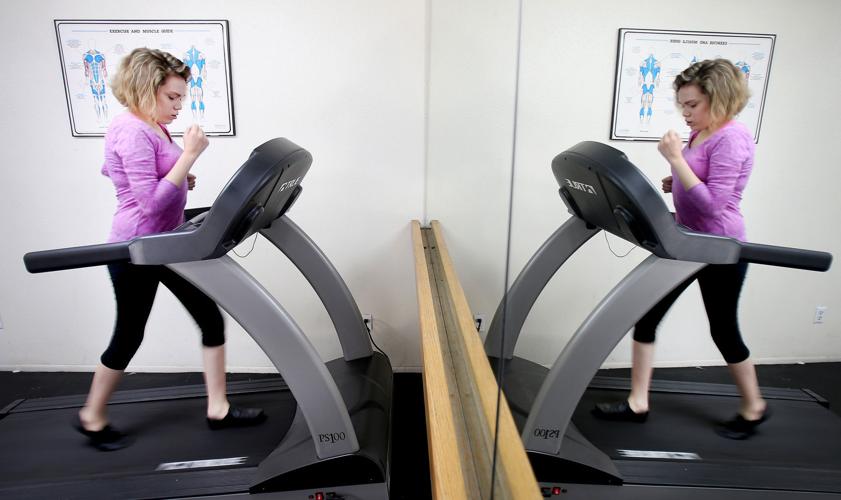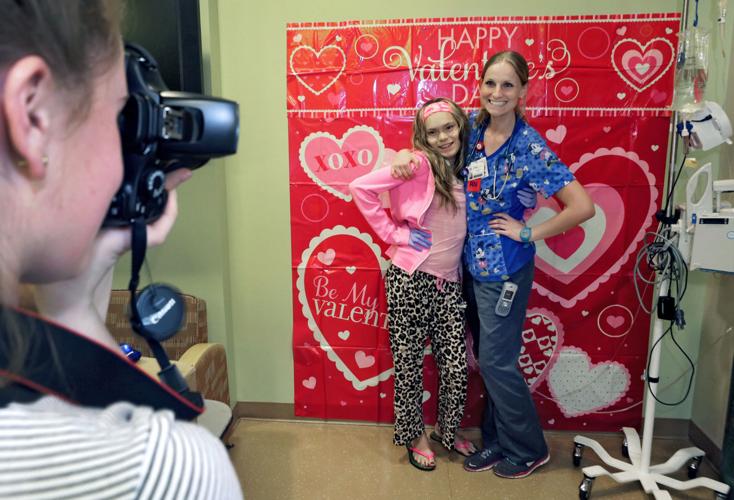The organ-transplant program at Banner-University Medical Center Tucson is regaining strength, signaled by its recent federal certification to offer adult lung transplants.
Without a local lung- transplant program, the closest place for Southern Arizonans to get a lung transplant was in Phoenix. Often local patients would end up moving their families to Phoenix temporarily as they recovered from surgery.
Now Tucson is back in the game. Officials say they are emerging from an administrative shakeup and local lung-transplant hiatus with a stronger program poised to provide an option for patients with end-stage lung disease.
There are now three places in Arizona where patients can get lung transplants. The other two are St. Joseph’s Hospital in Phoenix and the Mayo Clinic in Phoenix, which began offering lung transplants this year, but is not yet federally certified because it must first complete 10 transplants.
Once thriving
Ten years ago, Tucson was the only place in Arizona where patients could get a lung transplant. There were 17 lung transplants at the local center that year.
The Tucson program remained consistent for several years and transplanted a record 26 lung patients in 2011, federal data show. But that plunged to two in 2012.
In 2013, the center transplanted one lung patient. The following year hospital officials shuttered the once-thriving program, voluntarily relinquishing its certification with the U.S. Centers for Medicare and Medicaid Services.
That was in 2014, the year Dr. Scott D. Lick came to Tucson from the University of Texas in Galveston to become surgical director of the local heart- and lung-transplant programs. When he arrived, both programs were closed and neither had surgeons. Lick, who remembered the local transplant program as exceptionally strong when he trained here in the 1980s and ’90s, found the situation tragic.
While Lick was able to get the heart-transplant program up and running right away, the lung-transplant program remained closed for another year.
Skeptical insurers
With a team in place, Lick and hospital administrators began a new lung-transplant program in 2015, the same year the hospital was acquired by Phoenix-based Banner Health.
Officials were transparent with patients about the lack of certification.
Insurance companies directed some patients to other transplant facilities because of the Tucson program’s lack of federal approval, said Deborah Maurer, who is the statewide transplantation administrator for Banner-University Medicine.
“And we understand that,” she said.
The revived organ-transplant program in Tucson does not offer pediatric transplants for very young patients as it did in the past, and its intestine- and islet cell-transplant programs have not restarted after closing in 2013.
But the hospital is back on track with adult heart, liver, kidney, pancreas and now lung transplants, Maurer said.
Last week, the hospital performed its 100th kidney transplant for 2016, hospital officials say, putting the program on track for a record year in terms of the number of kidney transplants performed.
First patient
To get its lung-transplant program recertified with the federal government’s U.S. Centers for Medicare and Medicaid Services, Banner had to reapply, which it did after performing 10 transplants between 2015 and 2016.
The first of those transplants was on March 7, 2015, when high school junior Jennifer Morales got a new set of lungs in nine hours of surgery.
The San Luis High School student found out she needed a transplant while hospitalized in the pediatric intensive-care unit at Banner Diamond Children’s hospital with a virus in her lungs. She had so much trouble breathing that she could barely squeak out a few words of her one of her favorite Katy Perry songs, “Roar.”
Hospital officials told her about their lack of certification and that she’d be the first patient transplanted at the local hospital in more than a year. She and her family immediately liked Lick and decided to trust his team.
Morales got her name on the waiting list and then moved into Ronald McDonald House in Tucson with her mother. Her father, a trucker, remained in San Luis, near Yuma, as did her two sisters.
Based on wait times for lungs, Morales and her mother were prepared to stay at Ronald McDonald house for up to two years. But she ended up waiting just three weeks. Not all patients are that fortunate, Maurer stressed. A lot of factors are at play, including size and blood type.
Dancing future
Morales said her mother got the call that lungs were available. Since she doesn’t speak English, she repeated what she heard to her daughter.
“I translated for my mom and we just started crying,” Morales said. “Then I panicked.”
Morales, who has cystic fibrosis, was 17 at the time of her surgery — technically a pediatric patient, but the hospital was able to do her transplant as part of the adult program. Cystic fibrosis is a genetic disease that causes severe damage to the lungs.
Morales remained in Tucson for a month after her surgery and then continued to make weekly visits here throughout her senior year of high school. She also took up running, danced and joined the cheerleading squad.
Now 18, Morales recently moved to Tucson. Living locally makes it easier to get to the weekly lab tests she has with Banner’s transplant program here. She hopes to attend the University of Arizona in January and wants to be a dance major with a career goal of becoming a dance teacher.
While she was living at Ronald McDonald House, Morales had a chance to see “Sleeping Beauty” performed locally by Ballet Tucson.
It was the first time she’d seen a professional ballet production. She dreams about being able to see more ballets and being involved in the dance world.
External validation
After successfully completing Morales’ lung transplant, the local team continued with nine more over a 10-month period. That’s when it put in an application to be certified.
Federal officials did an unannounced site visit this spring and then this summer notified the hospital that it would be approved, Maurer said.
She said the standards are rigorous. After the federal visit in the spring, the Tucson program submitted a plan of correction to fix some documentation issues before getting final approval.
“It truly is external validation of a quality, patient-centered program,” she said.
While Banner-University Medical Center Phoenix is not performing lung transplants, it does offer pre- and post-lung transplant services to support Phoenix patients.
The local lung program recently performed its 16th transplant and has three patients on the waiting list for the procedure. The majority of the patients are from outside Tucson, referred from doctors within the Banner Health network, hospital officials say.
Not-for-profit Banner operates 29 acute-care hospitals in seven states and is one of the largest health systems in the U.S. Tucson is home to Banner’s only lung transplant program.
About half of lung-transplant recipients are alive after seven years. That average means some are doing well 20 or 25 years post- transplant. Morales is optimistic about her future. One of the first things she did post-transplant was to sing “Roar” for Lick and his staff. She sang the whole song, with breath to spare.






